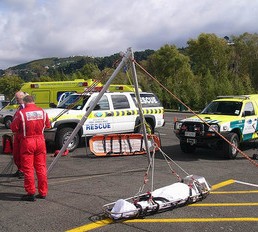How Much Is N.H. Paying For The Freedom To Take Risks?
According to a report released today by the Trust for America’s Health, 659 Granite Staters died from injuries between 2007 and 2009 — injuries such as concussions, motor vehicle accidents, and unintentional prescription drug overdoses. These injuries are not only a cause of grief for families and communities; they cost state and federal government, insurers, employers and families a total of $6.1 million in medical care and $625 million in lost productivity each year.
Of all 50 states, only nine had fewer injury-prevention laws than N.H. The last time a seatbelt bill was voted down in New Hampshire, Republic State Sen. Robert E. Clegg Jr told the New York Times: “The citizens of New Hampshire don’t like to be told by anyone else what to do … [rejecting this bill] preserves New Hampshire’s way of not succumbing to the bribes of the federal government and New Hampshire’s belief that every adult can make his or her own choices in life.” Other laws N.H. has not passed include required motorcycle and bicycle helmets; drunk-driving ignition interlocks for convicted drunk drivers; and booster seats that meet AAP standards for children.
In a state that believes in personal freedom above all else, this data begs the question: how much are Granite Staters paying to maintain their sense of liberty? How effective are these injury-prevention laws?
One figure suggests that safety laws may correlate less with injury rates than one might expect. When compared to the rest of the country, New Hampshire ranks 8th — very low — for injury-related deaths per 100,000 people.
On the other hand, case studies described in TFAH’s report suggest that safety laws do have a huge impact. Authors of the report write: “In 1992, California imposed a universal [motorcycle helmet] law. Helmet use jumped from 50 percent to 99 percent, and motorcycle deaths dropped by more than a third[…] After Kentucky repealed its universal helmet law in 1998, motorcycle deaths rose by 50 percent. When Louisiana did the same the next year, deaths doubled.”In recent years, death rates from motor-vehicle accidents have been eclipsed by deaths from prescription drug overdoses, both in N.H., and nationally. As the report states, “sales of prescription painkillers tripled from 1999 to 2010 — as did the number of fatal poisonings due to prescription pain medications.”
Today, N.H. is one of only two states without a state-mandated prescription drug monitoring program. But that might not be the case for long: last week the N.H. Senate approved bill 286, which would create a program that tracks addictive prescription drugs through a state database — one of the policies by which TFAH measures states’ injury-prevention ranking. The bill is likely to pass after the Senate reviews changes from the House of Representatives.

